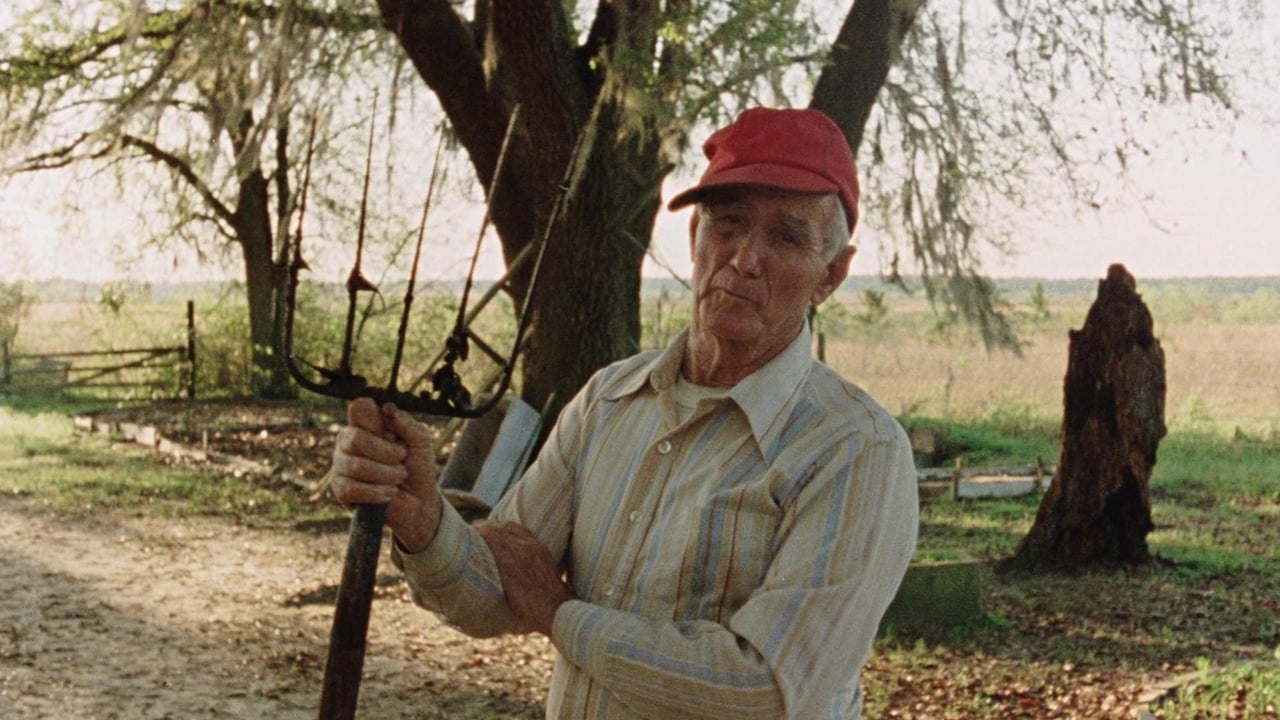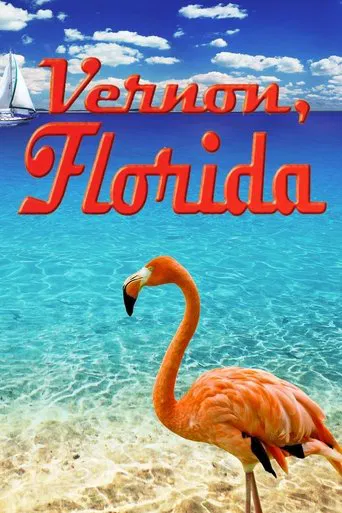Michael Neumann
If Jacques Tati had ever made a documentary it might have looked something like this: an inconsequential but humorous look at life in a community so far off the beaten track (on the Florida panhandle, some 90 miles west of Tallahassee) that the town's only law enforcement officer sits bored in his patrol car hour after hour, waiting to cite the occasional speeder. Director Errol Morris's strategy is simple: keep the camera rolling, and don't interrupt. The result is an oddly skewed but still endearing portrait of back-roads America, shot in grainy 16mm and rambling on for about sixty minutes before arriving at an abrupt non-ending. Among the town's more-or-less typical citizens (from a population of 885 at the time) are a worm farmer, an elderly couple with a jar of what they believe is radioactive sand, and a hunter in camouflage fatigues tracking wild turkey with the life-or-death conviction of Hemingway on safari.
ccthemovieman-1
Yes, I know this is a dry, sarcastic humor and usually I enjoy that sort of thing. However, this is really more of just an elitist filmmaker nastily poking fun at some backwoods-type people, making them look as stupid as he can up in his high-and-mighty perch as a supposedly intelligent maker of film. That's the way I looked at Errol Morris's documentary here. In truth, this is probably the worst of his films and I've seen most of them. They usually are very slanted with his obvious biases, but they're interesting, albeit many times condescending. This one was just plain boring.I mean, how long can you sit there and watch some hillbilly talk for 20 straight minutes about turkey hunting? That's entertainment? Even if you think the guy is so dumb or absurd you might laugh at him in the beginning, after a short time it's just boring. It goes on and on and on.I guess some label this as "camp," but the latter has to have some entertainment value. Listening to someone drone on and on about a boring topic is only good for one thing: putting the viewer to sleep.
Roger Burke
How many times have you driven through a small town and briefly caught the looks of the locals as you drove by, perhaps thinking about their lives – seemingly static – just as they were probably thinking about yours – moving too fast, perhaps?This is a film where Errol Morris lets you get out of your auto, so to speak, just to find out what those locals are indeed thinking about. It could be Any Town, Any State, Any Country but, for reasons unknown to me, Morris chose to get out at Vernon, Florida which, according to my Google maps, is about thirty miles due north of Panama City, just south of I10 – for those who like to know where they are all the time...Nobody, however, does documentaries quiet like Morris: stop the car, set up the camera, ask one of the local locals to talk, roll sound, roll camera, action – and say nothing to distract the viewer from what is being said. That's about as close to actual cinema verite as you're ever likely to get. That's Morris's trademark technique, which is its strength as well as its weakness – in a sense.Its strength because, as the viewer, you gain a totally uninterrupted (except for necessary editing) slice of humanity, uncluttered by any considerations other than to let that person talk. And, talk they do, providing a near voyeuristic insight into the rural mentality and psychology of part of America's deep south – something you'd never get, probably, if you'd just stopped off there one day to get directions to I10, or somewhere else. Often, some locals don't like to talk to foreigners, do they now? Well, here's your chance...Its weakness because Morris has obviously made a choice about who to put on film; he didn't simply set up the camera and then wait for people to sidle up to say their piece and then exit stage left. No – the locals he did choose (maybe they chose him also?) had something interesting to say, and they all said it well. To that extent, they all became 'actors', but no more than we are all actors in the story of our own life. The core of their beliefs shine through, however, from the guy who hunts wild turkey, to the pastor who provides a semantic dissertation on the word 'therefore', to the old man who keeps wild animals in his pen, and to the local cop who sits, most days, in his patrol car, waiting, waiting and waiting...The camera work is, as indicated, composed of many long, static takes for each interviewee; in all, there are six or seven characters, most of whom appear as individuals. Once, however, Morris has three old men discussing the bizarre facts about a suicide by a fourth person, and quietly arguing about the exact method the deceased used. Such candor is rarely seen or heard. The turkey hunter has the most screen time, perhaps because he is the most articulate, has fascinating details about turkey shoots and allows us to hear, at length, the languid silence of the Florida wetlands. The final scene, where Morris uses the only moving frame in the film, has that hunter watching the buzzards nest in the trees for the night, as the sun goes down – and wishing they were turkeys. City dwellers: eat your heart out...Truth is always better than fiction, and definitely stranger. You'll certainly laugh, you'll maybe cringe a bit, you'll smile often, and you might even feel sorry for some of these people who are, in the final analysis, no less than we are. And, no more.Highly recommended for all.
ethylester
I am not sure what to think about this movie. To me, it was just some people talking about their daily, original thoughts. I know people like this. I might be someone like this one day. I guess I don't see the point in it. I felt like the filmmaker was trying to prove something - but what? I couldn't figure it out.And did anyone notice there are NO WOMEN who tell stories in Vernon, (except the wife at the end)? Why is this? Was the filmmaker only trying to make a movie about old men? Or did the women of Vernon have boring stories to tell? I suppose this could be compared to a folklore collection. The rural folks, telling their stories, with or without a point. I love reading rural folklore because it often seems abstract, simple and enlightening at the same time. Even if you didn't live in that time period or under those circumstances, you can relate it to your life. I am sure I would have loved to talk to these old men about their lives. I could have easily sat at the bench with the opossum/turtle guy for hours hearing his stories. I would have been touched to ride on the boat with the man who talked about God, and he probably would have made some good points. It's not a big deal.Yes, he cracked me up when he said "I was the only person he knew that knows what to do with a opossum!" and then he held it by the tail and watched it try to walk away, and nothing else. Yes, I laughed when the preacher talked about the word "therefore" forever because it seemed sort of pointless. But, I am just thinking - so what? What's new? Also, what is the filmmaker trying to prove here? am I supposed to be laughing? There are people like this everywhere, and there always has been. Pick up any oral folklore book and you will find this film isn't an idea worth calling "brilliant".Go outside, talk to people. There are folks like this everywhere. Not just in Vernon, Florida. Maybe the reason people like it so much is that it captures this kind of personality in a raw and visual way. But you could do the same thing if you went outside your city limits and had some conversations with strangers. These people aren't freaks, they aren't even that weird, comparatively. They live their lives and they are happy, for the most part. Isn't that what everyone wants? I just don't think it's that weird and wacky. It's life.I don't get it. Also, I would have liked to see more women in Vernon. 5/10.

